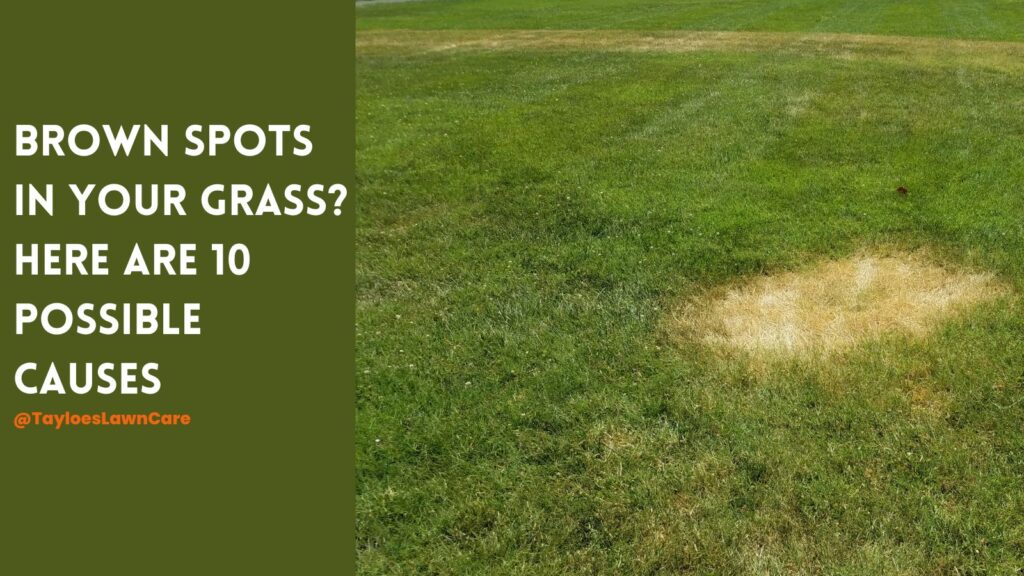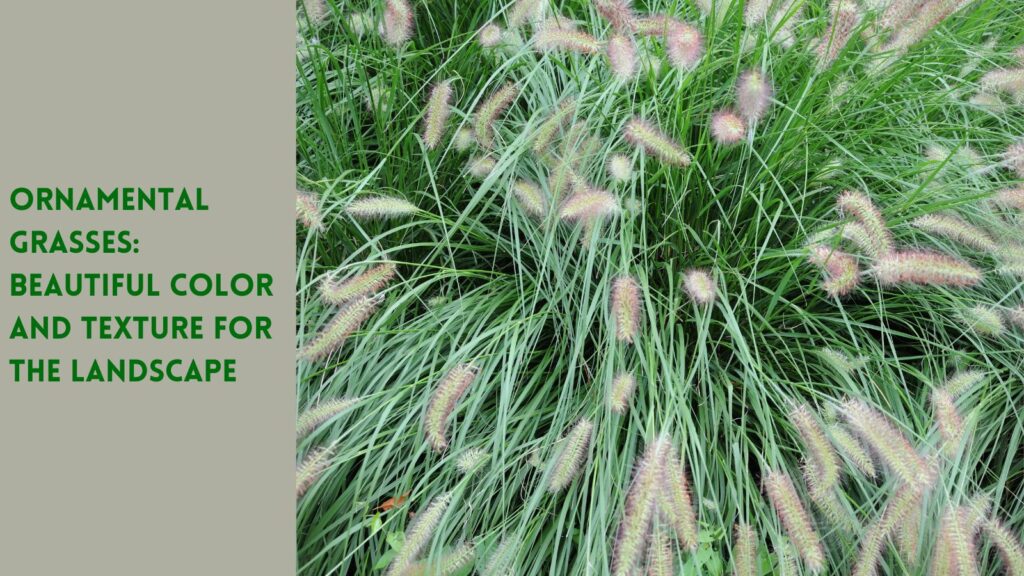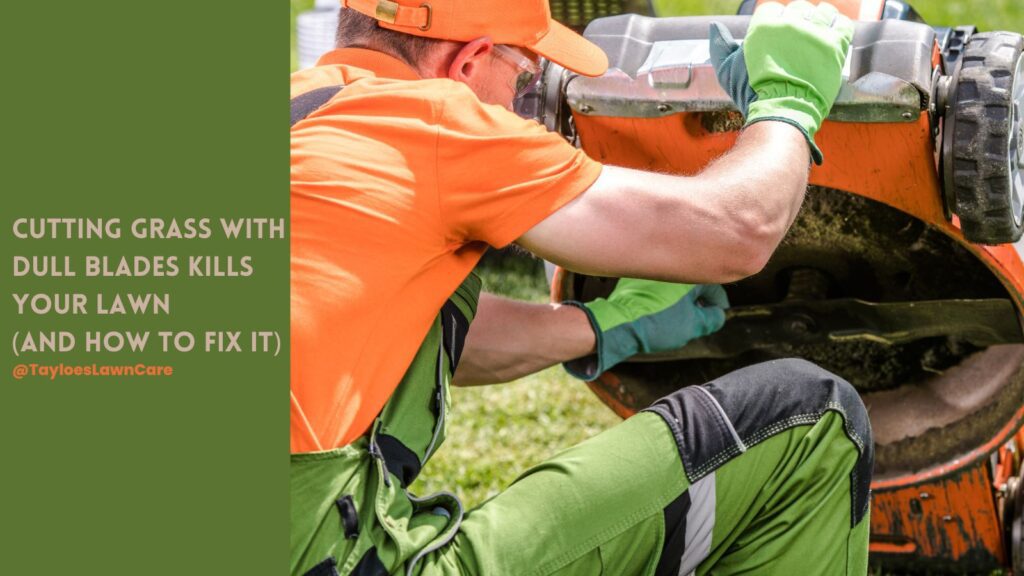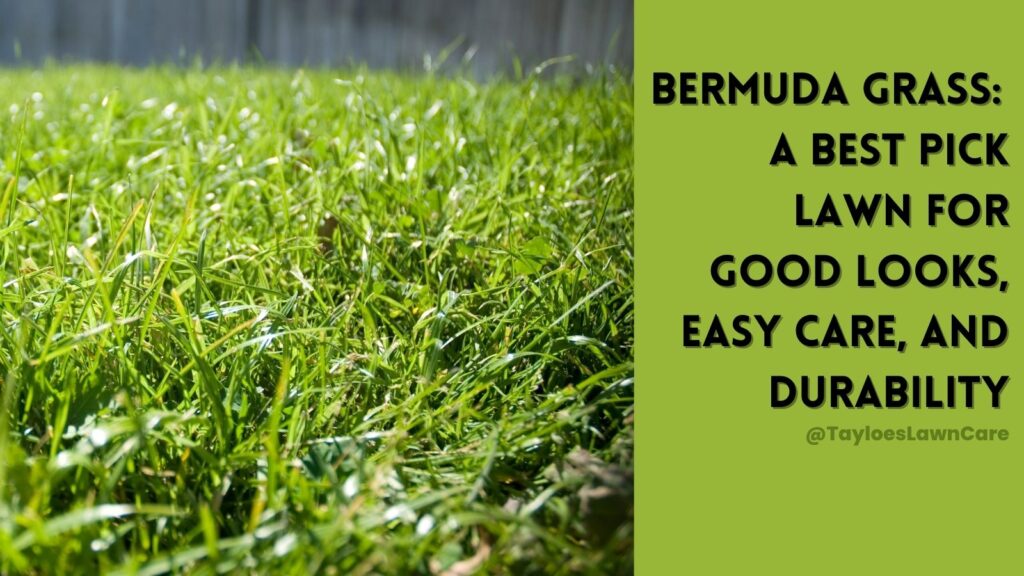Last Updated on: 30th October 2023, 11:25 am
Perennial ryegrass extends your “green season,” providing many benefits.
Homeowners and commercial property owners alike seek to maintain the allure of their outdoor spaces despite the dormancy that lies ahead. Enter the realm of winter grass—an artful technique to sustain lush, green lawns even in the face of plummeting temperatures. In our area, that usually means a mixture of perennial rye grass and fescue.
Whether you’re a discerning homeowner aiming to amplify your property’s curb appeal or a business owner committed to offering an inviting outdoor environment for patrons, winter grass can be your best friend for wintertime beauty. Together, let us explore the many benefits, suitable grass types, optimal planting techniques, and essential care requirements that will help you realize your winter lawn’s true potential.
By the end of this content, you will know the following:
- The advantages of winter grass: Dive into a fuller understanding of the merits bestowed by winter grass, such as its erosion-controlling properties, rapid germination capabilities, extended green periods, weed-suppressing abilities, soil improvement benefits, and contributions to enhanced air quality.
- The Power of Perennial Ryegrass and Fescue Blends: Learn the art of combining winter rye grass with fescue to extend the verdant season, enhance adaptability, and fortify resistance against common diseases. This exquisite synergy bestows a harmonious solution for your precious lawn.
- Planting Time and Regular Care: Discover the optimal timing for sowing winter grass in North Carolina’s zones 7 and 8, and gain invaluable insights into the meticulous care required, including adept soil preparation techniques, judicious seeding methods, effective watering practices, and the art of maintaining an appropriate mowing height.

Nine Advantages of Planting a Perennial Rye Grass and Fescue Winter Grass Mix:
These are the benefits of planting a blend of fescue and perennial rye grass-an ideal winter grass to keep your yard looking its best all year long:
- Lush Green Cover: Winter ryegrass is known for its vibrant green color. It adds a refreshing touch to your yard during the dormant season. It acts as a temporary lawn, effectively covering bare spots or thinning areas that may arise in your warm-season grass.
- Quick Germination: Rye grass exhibits rapid germination, allowing you to enjoy a thick lawn within weeks of planting. Its ability to establish quickly ensures that your yard will be filled with greenery sooner rather than later.
- Erosion Control: Winter rye grass forms a dense root system that helps prevent soil erosion during heavy rains. By planting it, you can safeguard your yard against potential damage caused by runoff.
- Weed Suppression: Winter grasses like ryegrass and fescue thrive during the cooler months. Thus, it is a dense cover that helps suppress wintertime weed growth. This natural weed control reduces the need for herbicides and keeps your lawn clean and well-maintained.
- Soil Improvement: Winter grasses have somewhat deep root systems that penetrate the soil. That helps to break up compacted areas and improve overall soil structure. Their root growth also enhances soil aeration and drainage. It is beneficial for the health of your lawn in the long run.
- Enhanced Air Quality: Winter grasses, particularly fescue, improve air quality by absorbing carbon dioxide and releasing oxygen. By planting these grasses, you contribute to a cleaner and healthier environment in your immediate surroundings.
- Extended Green Period: Mixing winter rye grass with fescue provides a longer green period. It ensures your lawn remains visually appealing throughout the winter season. Fescue, a cool-season grass, complements the rye grass by maintaining its lush appearance during milder winters and early spring.
- Adaptability: Fescue thrives in a broader range of soil types and shade conditions. That makes it an excellent choice for areas with varying sun exposure or challenging soil conditions. By incorporating fescue into your lawn, you enhance its resilience and adaptability.
- Enhanced Disease Resistance: Fescue grass varieties, such as tall fescue, exhibit excellent disease resistance. Combining winter rye grass with fescue creates a lawn better equipped to withstand common diseases that may affect your warm-season grasses.

Planting Time and Care Requirements for Winter Grass:
The ideal time to plant winter rye grass mixed with fescue in North Carolina’s zones 7 and 8 is early fall, typically from September to mid-October. This timeframe allows the grass to establish strong roots before the arrival of the colder temperatures.
Here are some essential care requirements for winter grasses:
- Soil Preparation: Prepare your soil by removing debris, loosening it with a rake, and ensuring proper drainage. Conduct a soil test to determine if any amendments are needed.
- Seeding: Spread the grass seed evenly over the prepared soil according to the recommended seeding rates. Rake the seeds gently to ensure good soil contact.
- Watering: Water the newly seeded area frequently to moisten the soil until the grass establishes. Afterward, reduce watering to allow the grass to adapt to natural rainfall patterns.
- Fertilization: Apply a balanced slow-release fertilizer to promote healthy growth. Follow the manufacturer’s instructions regarding application rates and timings.
- Mowing and Maintenance: Once the grass reaches a height of around two to three inches, mow it to encourage denser growth. Avoid mowing too low, as it can stress the grass; cut it at a minimum height of two inches. Cutting it any shorter than that will stunt its growth. Regularly remove leaves and debris to maintain a clean appearance. Call us at 252.287.3376 if the green grass sounds great, but the maintenance does not. We are your year-round lawn pros.



The Takeaway: Your Grass Can be Greener, Longer and Your Soil Improves With a Winter Blend of Perennial Rye Grass and Fescue
At Tayloe’s Lawn Care Services, we are committed to elevating your landscape to unrivaled heights. Stay abreast of our forthcoming blog posts, replete with invaluable tips and expert counsel on refining the art of lawn maintenance in Windsor, NC, and the surrounding communities. By subscribing to our blog, you unlock a world of transformative insights and usher your lawn care endeavors into a realm of unbridled excellence. Call or text Tayloe’s Lawn Care Services in Aulander at 252.287.3376 to schedule winter grass overseeding this fall.
Author Profile

- Randy Tayloe is the COO of Tayloe's Lawn Care Service, LLC. He is a certified custom applicator, recognized by the North Carolina Department of Agriculture Pesticide Division. A native of Bertie County, NC, and graduate of Bertie High School, he wants to beautify his home county - one yard at a time.
Latest entries
 Trees and ShrubsJanuary 13, 2026Repairing your shrubs after frost or ice damage
Trees and ShrubsJanuary 13, 2026Repairing your shrubs after frost or ice damage Lawn CareJanuary 6, 2026Year-round lawn care schedule for NC homeowners
Lawn CareJanuary 6, 2026Year-round lawn care schedule for NC homeowners Lawn CareDecember 29, 2025Benefits of de-icing treatments ahead of winter weather
Lawn CareDecember 29, 2025Benefits of de-icing treatments ahead of winter weather FaunaOctober 3, 2025Fall decorations that endanger wildlife (and how to avoid the risks)
FaunaOctober 3, 2025Fall decorations that endanger wildlife (and how to avoid the risks)






